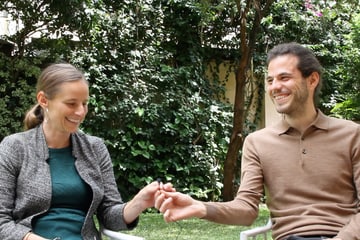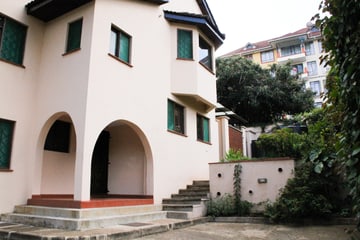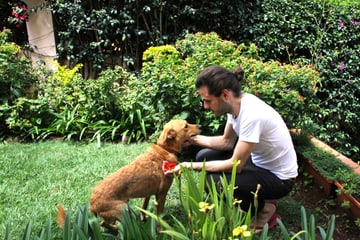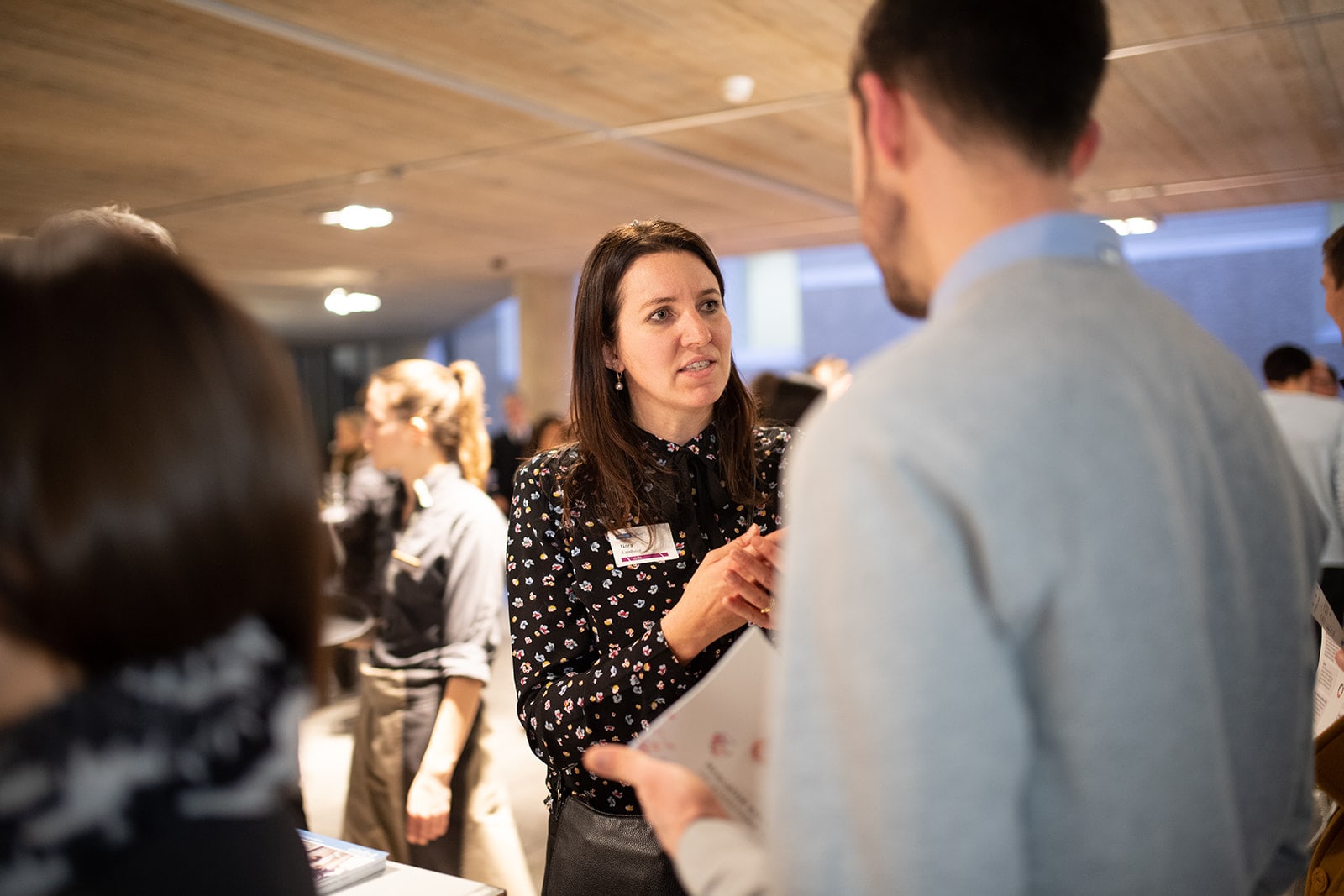"Being Swiss, we tend to be a bit reserved. Get out of your comfort zone, don’t be afraid to network and make yourself seen!"
David Müller, working for UNDP with SDG investing, talks about his fascination with Africa, maintaining a good work-life balance, maintaining social contacts, and shares some useful tips for anyone interested to work in international cooperation abroad.

Swiss nationals in international cooperation in Nairobi
In this series, we interview Swiss nationals working in international cooperation currently located in Nairobi. They share honest insights about their job, work-life balance, how they started working in the sector and things they wished they knew before taking the position.
David lives in a two-storey house in a residential area of Nairobi. After the guard granted entry to the gated community, David warmly greeted me at the gate to his house. I also received a friendly welcome from his dog, who enjoys the freedom of the extensive garden. While waiting for the arrival of David’s friend Isabelle – who also works for the UN in Nairobi – he showed me his organic vegetable garden and some bright red chilli that thrive in this climate. When Isabelle arrives, the two greet each other like old friends, and we sit down on the outdoor terrace for an afternoon chat.

Has working in international cooperation always been a dream of yours?
David: I was never exposed to the world of international cooperation when I grew up, nor did I plan to work in this field. After high school, I travelled to Kenya, staying to explore the country for some time. I really liked it and was fascinated by the African culture. Upon returning to Zurich, I did my bachelor’s degree in cultural anthropology and minor in ethics & political science.
After graduating, I went back to Kenya, where I did an internship with the Swiss Embassy and stayed on to work on a project concerning the famine in Somalia. I became very interested in these topics, and knew that I wanted to work more in this field. Realising that it would be helpful to have a more solid theoretical foundation, I went on to do a masters in African studies in London before returning to Africa as a JPO based in Addis Ababa.
When settling at a new destination each time, what is your advice to maintain a good social network?
Interestingly, it’s almost easier to make friends abroad than in Switzerland. When making friends, we seek people who have similar interests or ideas as our own. When living abroad and working for an international organisation, you already have so many things in common with your colleagues. You are in a foreign country, trying to adapt, working in a similar field… I never had much difficulty making friends wherever I was. In the beginning, of course, it takes some time to get a social network and make acquaintances. The connections you make are not only valuable social contacts but can also be very valuable for your professional network. So don’t be afraid to be a bit more outgoing than you would be at home. You can also always reach out to the local SDC office or the Embassy and ask if any other Swiss nationals are currently in the country.
The connections you make are not only valuable social contacts but can also be very valuable for your professional network. So don’t be afraid to be a bit more outgoing.
What do you do to maintain a good work-life balance in your job?
Separating work from free time became more challenging since covid and working from home. Not only are you constantly at your laptop, you’re also always reachable. As half my team are in New York, despite working from the morning, I need to wait until the afternoon to get some replies which often leads to late evenings. Additionally, when starting a new job, you naturally want to prove yourself and maybe overperform, which although can be good, you need to know your limits. At some point in your job, you need to set a conscious boundary of what is an acceptable workload for you and what is too much. And then stick to that. For example, suppose an email comes in ten minutes before you are about to leave for a planned evening out. It is not the end of the world if you ignore it and look at it first thing tomorrow.
At some point in your job, you need to set a conscious boundary of what is an acceptable workload for you and what is too much. And then stick to that.

Is there something you wish you had known or someone had told you before the start of your career?
Sometimes, in an interview scenario, it is hard as a young professional without much work experience to differentiate yourself from the competition and prove that you are interested in that particular job. But it can just be something really simple to prove your interest, like a paper on the subject you know really well, or that you have taken an extra course on that topic.
Further advice: Being Swiss, we often tend to be a bit reserved, not pushing ourselves that much or risk going out of our comfort zone. Get out there, make yourself seen, approach organisations directly; maybe they have some vacancies or are impressed by you. Reach out to professionals on LinkedIn and ask them some questions. If asked, I, for instance, am always happy to talk for a few minutes with an aspiring professional and share my experiences.
Our services – to take you further
cinfo supports Swiss professionals considering a career with the UN or a development bank, and those already in the system:



